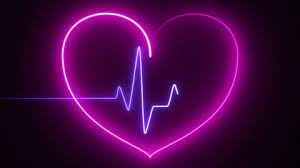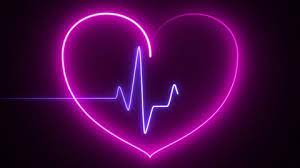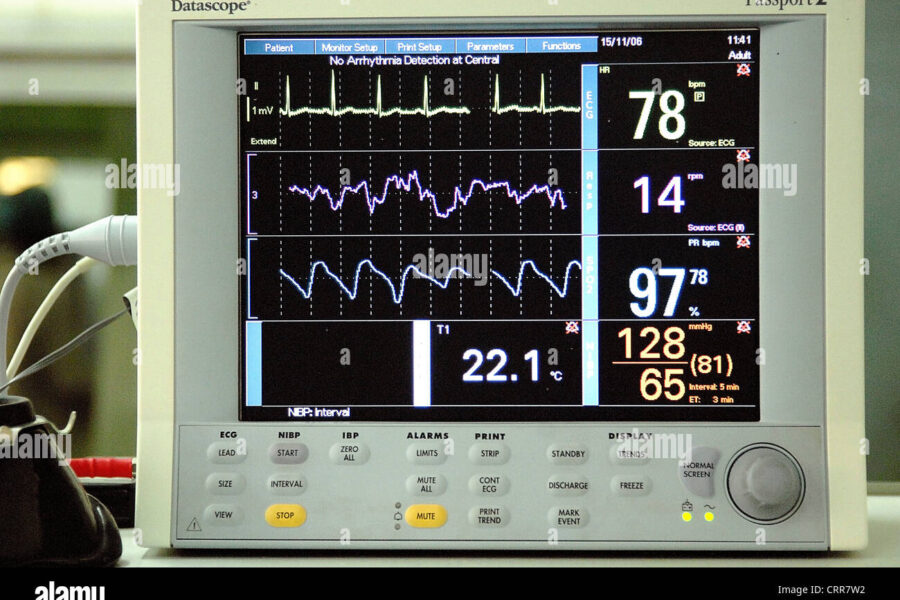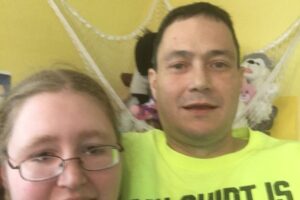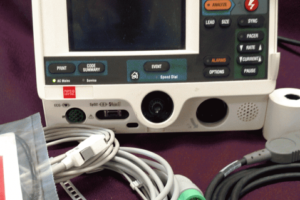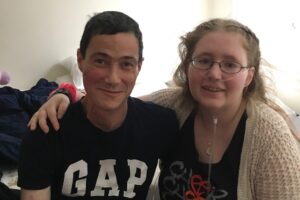Table of Contents
Learning I Had Abnormal Heart Rhythms
I lay down on the crinkly white paper on the exam table in Dr. Oster, a pediatric cardiologist’s exam room. I was now thirteen years old and Dr. Kaye, my adolescent medicine doctor was really worried about me. Apparently, my heart had been going into some abnormal heart rhythms. Dr. Oster wrapped a child-size cuff around my upper right arm and let the automatic machine inflate and deflate it. My blood pressure was 96/52 and my heart rate was 122.
Usually when I was lying down it was around the 120s, so that was pretty typical for me. Then when I sat up it would bounce up to around 135 or so. When I stood up it would hit the 150s.

Getting Tested For Various Abnormal Heart Rhythms
I knew nothing about abnormal heart rhythms. Neither Dr. Kaye or Dr. Oster ever told me anything specific about something being wrong with my heart, but that day at Dr. Oster’s office, after he took my blood pressure and heart rate lying down, sitting up, and standing, I read it right off his face. After he left the room for a moment I looked it up on my phone. A normal heart rate for a teenager is 60 to 100 beats per minute, and it shouldn’t fluctuate like that with changes of position.
When Dr. Oster returned he told me that my heart was beating in an abnormal heart rhythm called tachycardia and he would need to run some tests on me. I was not surprised.
The Battery of Tests for Abnormal Heart Rhythms
I had an EKG where they covered me in stickers and wires and had me lie very still then printed out a picture of my heart beating in wavy lines. Then I had an echocardiogram where I had to get covered in gel as they took a 45-minute long ultrasound of my heart. I had to run on a treadmill with a heart monitor on, and an IV in my arm, then they injected medication that made me feel weird into the IV. Last of all, I had to wear a heart monitor for 24 hours and press a button, and write down in a journal anytime I felt sick.

Getting Diagnosed With POTS and Renal Tubular Necrosis
The results were similar, I had a too-fast heart that also sometimes beat in a tachycardia sinus rhythm as a response to movement or low potassium. They called that part POTS and Renal Tubular Necrosis.
Over and over Dr. Kaye would order liquid potassium. I would put it through my NJ tube with all of my other meds. My NJ tube was that tube that went in my nose, past my stomach, and into the middle of my small intestine. I got all of my nutrition and medication through the NJ tube the year I was thirteen, as my gastroparesis (paralyzed stomach) was flaring up badly that year.
When I Stopped Absorbing Certain Electrolytes Through My Digestive Tract
Even though I would inject the liquid potassium through my NJ-tube, it never made my potassium higher. Instead, I would get a call from Dr. Kaye to pack a bag for a few days because she was direct admitting me to the adolescent floor of the hospital to get an IV infusion of potassium to bump up my levels and calm down my heart.

“Your gastroparesis is getting so bad you’re not absorbing certain electrolytes through your GI tract,” commented Dr. Kaye shaking her head at one of my appointments. “That doesn’t fair well for the future.” I never understood what she meant until I stopped tolerating tube feeds and had to start IV nutrition (TPN) which always kills your liver over time and is not something you can live on indefinitely
Starting Metroprolol For My Abnormal Heart Rhythms
Dr. Oster started me on Metoprolol to stabilize my abnormal heart rhythms and also ordered me a child-size blood pressure cuff.
“You need to check your blood pressure morning and night every day. If the top number drops under 85 or the bottom number drops under 50 you need to call me immediately and not take the pill.” Were his strict instructions.

Going Into A-fib
Patiently, I waited and waited for the medicine to stop the butterflies-on-steroids that were going at it inside my chest where my heart should be, but the medicine never calmed the inside of my chest long enough for me to have any relief. Instead, the EKGs worsened.
“You are going into abnormal heart rhythms called Atrial fibrillation where the upper chamber of your heart is just quivering instead of pumping efficiently. This puts you at high risk for dangerous blood clots that could cause strokes and even kill you.”
“Other times you are briefly going into abnormal heart rhythms called atrial flutter where the upper chambers of your heart are beating way too fast, or SVT where your pulse is racing so rapidly that we may have to temporarily stop it and restart it. You are even occasionally going into abnormal heart rhythms that can be lethal, like ventricular tachycardia.” Dr. Oster explained to me as he told me why he was putting me on another medication called Amiodarone and a daily injection I would have to give myself was a blood thinner, called Lovenox.

Going into SVT While Home Alone With My Dad
I hated stabbing myself in the belly with the Lovenox but my dad still didn’t believe there was anything wrong with me, and my mom was too squeamish about needles. Counting to three I would just dart the needle in, inject it, and pull it out.
Sometimes I needed to go to the hospital to get cardioverted (have my heart stopped and restarted by either medication or by getting shocked in the chest while sedated). Other times I had to go to get medication and monitor for episodes of the more dangerous abnormal heart rhythms. I could usually tell when they were getting to bed because my chest would feel really strange or I would pass out. One day when I was fifteen, I had an episode of SVT while I was home alone with my dad.
Because of the rapid beating of my heart, my body wasn’t getting adequate blood flow and I was trembling all over. It was like all of me had somehow turned into melting Jell-O.

Passing Out From The Abnormal Heart Rhythms
I was having such a fast racing heartbeat that it was causing a pressure almost burning feeling in my chest.
The pressure was getting worse.
My heart was beating so ferociously that it was hard to get air in.
I mustered up every last bit of everything I had left in me and yelled up the stairs.
“Dad, I don’t feel right! I need you!”
“I’m busy right now, I’ll be down in a little bit.”
The pounding of my chest was staccato. Black was starting to swirl into my consciousness.
“I need you now, I’m really sick. I’m about to pass out. I need you to take me to the hospital,” my voice was weakening, but still audible.
“You’re fine Becca, you…”
The rest of what he said got lost because the black that had been swirling in at the edges had swallowed me whole.
As awareness and my senses were returning to a functional state, I could feel that my heart seemed to now be beating so fast that I couldn’t tell where one beat stopped and the next one began.
I was lying on the floor. I had passed out. My head throbbed. I had whacked it on something.

Being Treated Like I Was Faking Sick
“Ok, you have my attention now Becca, what do you want?” My dad was standing over me as I lay sprawled out on the floor. My dad tends to want to pass up all my physical concerns as either psychosomatic or made up for attention or me being a hypochondriac.
“I need to go to the hospital. Something’s wrong.”
“Well that’s not going to happen, so what else do you want?” he asked me.
“I need to go to the hospital” I repeated. Panic was nakedly streaking through my head as I desperately tried to dress it and find something useful to do with it.
I was afraid if I just sat there arguing with my dad about whether or not to go to the hospital, I would run out of air. I knew my dad just thought he didn’t want to cater to “attention-seeking behaviors.” Part of me knew that he loved me deeply, fiercely, and unconditionally. He really and truly thought he was doing the right thing and trying to help me “get better” from my “psychological condition” of “faking sick for love”, but I didn’t have time for his misplaced diagnoses.
Calling 911 On Myself
So I did what I should have done in the first place and pulled out my phone pressed the numbers 9,1,1, then spoke to the dispatcher.

“I have multiple heart conditions as well as an NJ tube for gastroparesis. Today I’m having a really fast heart rate and it’s causing breathing problems and loss of consciousness,” I told the dispatcher.
Just then my dad wrenched the phone out of my grasp and spoke into the receiver.
“She’s just a kid and a psychiatric patient. You don’t need to send an ambulance out or anything, I will have a talk with her about inappropriate use of the emergency response system,” he said before hanging up the phone.
Before I could get angry at my dad, cry, try to take the phone back or react in any other way, shape, or form, I got pulled into the black of unconsciousness again.
My Dad Realizing I Was Sick
When I woke up my dad was stroking my forehead, calling my name, and apologizing to me over and over again.
“I think you’re having some effects from your eating disorder,” he kept saying. “I should’ve listened to you, the ambulance is on its way right now. Just try to stay still and wait for them to get here. We’ll get through this. You can knock Becca down, but you can’t knock her out,” he smiled at me.

I couldn’t help but smile back.
Ok. So, he was still insisting I had an eating disorder but at least he believed me about having something physically wrong in need of urgent medical attention.
At the hospital, the EKG confirmed that I was in an SVT abnormal heart rhythm.
Prepping to Get Adenosine For My Abnormal Heart Rhythms
“We’re going to need to give you Adenosine to get you back to a normal sinus rhythm.” the doctor told me apologetically.
The Adenosine is going to stop your speeding heart. It will completely stop it from beating at all. Then your heart is supposed to restart in a normal rhythm” explained the doctor.
I’d had Adenosine before, but I still didn’t like the way the doctor had explained it. “Your heart is supposed to restart in a normal rhythm.” I didn’t want to hear supposed to I wanted to hear, “It will start in a normal rhythm.”
Before they gave me the Adenosine they hooked me up to a crash cart heart monitor. Then they put the defibrillator pads on me just in case my heart didn’t restart immediately after the Adenosine stopped it. As if knowing you’re being prepped for the possibility that your heart might not restart fast enough isn’t bad enough, the medical team also had my dad, sign a paper saying that in the event my heart did not automatically restart they could apply up to 360 joules of electricity to my bare chest to jumpstart it. That same paper also said this may or may not be enough to save me.

The Experience of Getting Adenosine
As if all the above wasn’t bad enough to make the experience horrific, the actual experience of getting the medicine injected into my body was even worse. They had to slam the medicine in my IV at a high-speed rate and instantly I felt like I’d been tackled by a linebacker.
They flushed the medication all the way through with a saline flush and I felt all the air in my body whoosh out of me. I felt intense pressure like someone was sitting on my chest squeezing all the air out of me. It was somewhat of a reverse pressure feeling in my lungs and chest.
In reality, I’m sure my heart only stopped for a few seconds, but it seemed like I was hung in suspended animation while my chest was in that suffocating reverse pressure feeling. Everyone in the room had just stopped staring at the flat line on the heart monitor.
When the blip-blip returned to the heart monitor on the crash cart there was a collective sigh, and then the previously frozen room swung back into motion. As I was switched from the crash-cart monitor to the bedside monitor, I felt the fresh, more refreshing even then ice-tea-on-a-hot-summer-day-feeling in my lungs and chest, as life force flooded back through me again with each pump of my heart that was now beating again in what the medical professionals happily referred to as normal sinus rhythm

Where’s My Dad?
While being connected to bags of IV fluids intended to rehydrate me and bring up my blood pressure, which was, as usual, a little too low for their taste, I asked one of the nurses for my dad.
He told me to tell you that he loves you very much, but that hospitals make him too nervous so he went home.” She explained to me.
I tried not to cry. But it didn’t work.
Discover more from chronicallyalive.org
Subscribe to get the latest posts sent to your email.
